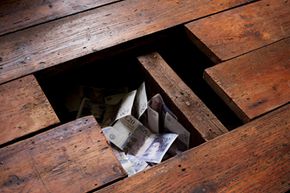
When you file for bankruptcy, you are required to provide detailed and complete information about your debts, income, expenses, financial history and assets. If you purposefully conceal information about an asset — or aren’t entirely honest about the asset or its value — criminal charges could follow.
The court requires you to be honest. It employs an asset discovery process, which refers to the legal, formal process used to gather information or documents about your assets. In addition to the information you provide, a bankruptcy court trustee will audit your debts for discrepancies. If, for example, you only own two chairs but have a fresh loan from a furniture store, this will prompt the trustee to wonder whether you are having someone store the furniture as a way to conceal it from the court.
The court trustee will also search public records, bank records, tax returns and online databases, as well as payroll slips, bank accounts and retirement accounts. The trustee may even ask former neighbors, co-workers, spouses and friends to weigh in on your assets.
It’s best to share information about your assets voluntarily, because failing to do so could result in being denied a bankruptcy or, in severe cases, lead to criminal proceedings. People who attempt to hide property during bankruptcy can be levied a fine of up to $500,000 or face up to five years in prison.
Before you file for bankruptcy, you’ll also want to avoid taking these actions with your assets:
- Giving away or selling assets in the 12 months before your bankruptcy filing. It looks suspicious, in the eyes of the court, if you suddenly gave your prized antique car to Aunt Lorraine for a weekend cruiser. The court would prefer you hang on to that beloved car so that it remains an asset that could be liquidated to help satisfy your debt.
- Playing favorites. Let’s say you sell your antique car instead, and, as a last-ditch effort before filing bankruptcy, use the money to pay Sal’s Garage. Even though you owe money to other creditors, it became really important for you to pay Sal’s Garage in full. It may have seemed wise at the time, but the bankruptcy court will view it as a "preferential transfer," and could force Sal’s Garage to turn over this amount to the court, which will then distribute it among all your creditors [source: Lane].
There are many things that can go wrong if you attempt to conceal assets during the asset discovery process. You might not be able to discharge your debts, which means you’d still need to pay them. Plus, you could go into an unfortunate bankruptcy limbo, where you remain in active proceedings until all your assets are discovered. Even when your bankruptcy is finally completed, the debts related to assets you attempted to hide could remain; you could still owe on them and be unable to discharge them in future bankruptcies [source: Dzikowski].
Lots More Information
Related Articles
- Why would the U.S. mint a trillion-dollar coin?
- 10 Ways to Make Extra Money From Home
- 10 Healthy Ways to Build Credit
- How Bankruptcy Works
- 10 Most Spectacular Lottery Burnouts
Sources
- Dzikowski, Patricia. "Hiding Assets and Property in Bankruptcy." Nolo. (Sept. 17, 2014) http://www.nolo.com/legal-encyclopedia/bankruptcy/hiding-assets-property-bankruptcy.html
- Lane, Stephanie. "What Not To Do Before Bankruptcy." Nolo. (Sept. 17, 2014) http://www.nolo.com/legal-encyclopedia/what-not-do-before-bankruptcy.html